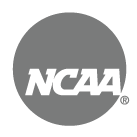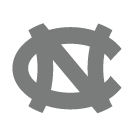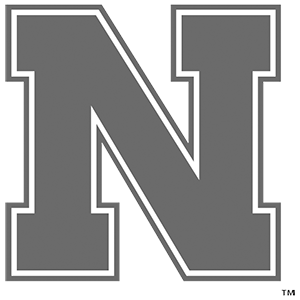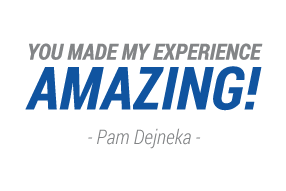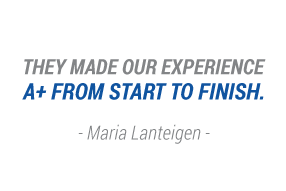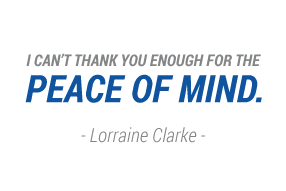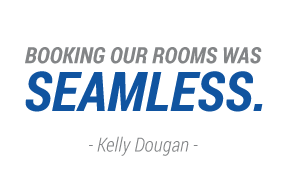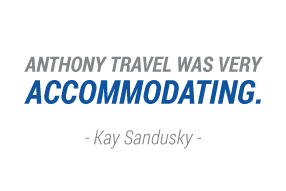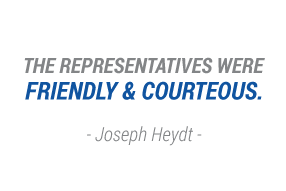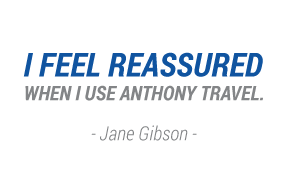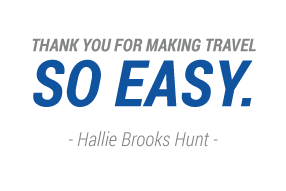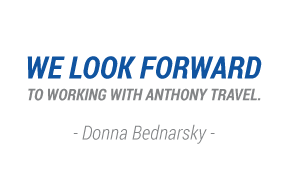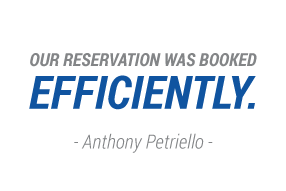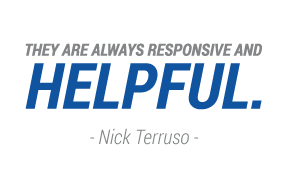Passionate About College Sports
By Peter J. Howe
Notre Dame Business Magazine
John Anthony (’86) saw the tsunami coming.
Back when the “World Wide Web” was an exotic buzzword and only the hardest-core techies could envision buying a plane ticket through a computer, the little Dallas travel agency that Anthony was working for in the winter of 1995 got a piece of ominous news. Airlines, which back then provided $4 of every $5 in most travel agencies’ revenues, were putting the squeeze on to boost their profits. Instead of awarding agents a 10 percent commission for booking tickets, Delta Air Lines—rapidly matched by the rest of the industry—chopped commissions back to a cap of $25 to $50 per ticket.
For travel agents, it was like a tourniquet squeezing their lifeblood. “I do remember saying, ‘What if it goes to zero?’’’ Anthony recalled of one office meeting. “There was nervous laughter. You couldn’t believe it would. But if it did, we were all gone.’”
In fact, Anthony turned out to be prescient, a living example of the maxim that a moment’s insight is sometimes worth a life’s experience. As billions of dollars in airline business began migrating to Web sites like Delta.com and Southwest.com, or comparison-shopping services like Expedia and Travelocity, airline commissions for most tickets disappeared by 2002. So, too, did nearly 40 percent of U.S. travel agencies, whose number plummeted from 32,238 in 1999 to 20,492 last year, according to the Travel Industry Association. The number of people employed as travel agents in the United States, according to the Bureau of Labor Statistics, plunged from 111,130 in 1999 to 87,600 in 2006.
Well before the bottom fell out, though, Anthony Travel Inc.had figured out how to not just survive but thrive: college sports. Specifically, it became the go-to travel agency for theUniversity of Notre Dame and other colleges facing unique travel challenges when platoons of student-athletes and coaches hit the road.
Anthony Travel has become the classic Internet-age success story of a business mortally threatened by the Web that found a new and lucrative life by “moving up the value chain” and selling complex, specialized expertise. “All we were really doing was picking something we were passionate about. That’s how we narrowed our focus,’’ said Anthony.
Today, Anthony Travel employs more than 100 people, 50 at its Dallas headquarters and 50 at on-campus client offices nationwide. They book travel for 31 colleges and universities, as well as athletic associations such as the Intercollegiate Tennis Association and U.S. Youth Soccer. Gross sales exceed $60 million annually, according to Anthony. He works a block off the Notre Dame campus in South Bend but spends typically three weeks out of four on the road.
Anthony, a Fort Worth native, describes himself as “your typical Notre Dame student, a sports fanatic from a middle-class family.’’ He played on the golf team as an undergraduate and was twice an academic All-American. Anthony’s ND roots, though, go a little deeper than most: his father and father-in-law and four of his five siblings are Notre Dame graduates. His wife, the former Katie Walsh (MBA ’96, ’85), is among six of eight siblings who attended Notre Dame. After graduation in 1986, Anthony went to work as an accountant at Ernst & Young. In 1989, a Texas childhood friend, David Handler, had an inspiration that there might be a great business selling travel packages to Fighting Irish football fans. Handler teamed up with John and other friends to launch Anthony Travel. Exploiting non-obvious routings on super-cheap discounters like Midway Airlines and Southwest to slash costs, Anthony Travel built a loyal customer base among Notre Dame students and alumni. By 1991, the company signed Notre Dame as one of its first institutional clients.
Booking college sports travel involves scenarios few casual travelers might imagine: spring rainouts and makeup doubleheaders for baseball and softball teams; last-minute changes in the names on flight manifests—which drive the Transportation Security Administration crazy—when a junior varsity player or walk-on replaces an injured team member; sudden itinerary changes for recruiters who learn that the hot prospect in, say, Oklahoma has signed with another school and their next visit needs to be Tallahassee, not Tulsa; wacky oversized-luggage demands such as marching-band tubas, track-team javelins and hockey goalie pads.
Not to mention last-minute bookings by teams that suddenly realize they could make the NCAA Final Four. “Every year my phone rings with someone saying, ‘We met once. I’m the athletic director at Underdog U., and, uh, if we win tomorrow night, we don’t have anything prepared for where we’re going to have to travel,’” Anthony said.
Jamie Zaninovich will never forget the day John Anthony won the travel account for Stanford University. Zaninovich, who this spring became the West Coast Conference commissioner, was a senior assistant athletic director at Stanford in 2002 when the university held a bidders’ conference for the Cardinal travel contract.
“We had every major travel company there, and it became clear that John and these guys knew more about college athletics travel than we did—and we were in college athletics,’’ Zaninovich said. As the conference presentations were underway, a Stanford staffer rushed in to report that two track-team members had missed their plane, and United Airlines was refusing to put their 16-foot-long pole vault poles on the next flight out of Chicago. Not missing a beat, Pat Walsh (’91)—John’s brother-in-law and head of collegiate travel for Anthony—sprang up and said, “Hey, I can help you.’’ Working his cell phone in the hallway, within minutes Walsh had a contact at United rebook the two jumpers—and their poles—on the next Bay Area flight.
“It was very clever of you guys to test us during the bid process,’’ John Anthony told Zaninovich later. But it was for real, and it sealed the deal.
Why do big name colleges and universities stick with little Anthony Travel instead of a giant like American Express or Carlson Wagonlit? Or pass on potential savings by using one of the new online group-travel booking services like the one Orbitz.com and TripHub.com launched last summer?
Loyalty for great service and deeply nurtured professional relationships is one key reason, Zaninovich and others noted. When snags arise—a 10 p.m. lightning storm has suddenly snarled the road-trip itinerary, let’s say—Anthony customers have home and cell phone numbers to call John or Pat Walsh or one of their assistants, not an 800-number help-desk at a company whose real focus is Fortune 500 multinationals.
But Anthony noted that in the college travel business, his company is now big enough that it wins “at least as good rates as the megas get, sometimes better’’ when negotiating with airlines and hotels.
That was part of what sold the ING New York Marathon officials two years ago on making Anthony Travel their official domestic travel agency for 8,000 runners flying in from around the United States. “They won us over immediately with their passion for taking care of the customer, and you get not just the warmth of a mom-and-pop, but the infrastructure of a very significant company,’’ said Mary Wittenberg, chief executive of New York Road Runners, the marathon sponsor. Anthony Travel got the pact through a wide-open request-for-proposals competition, but Wittenberg, a 1987 Notre Dame Law School graduate, acknowledged that learning of the South Bend connection with Anthony “gave me that little extra level of trust.’’
Ultimately Anthony’s business philosophy is one anyone contending with Internet competition can take to heart. “Everybody has to be doing something that somebody’s willing to pay for,’’ Anthony said. “You get the deal on economics. You keep the deal on service.’’
—Former Boston Globe reporter Peter J. Howe became business editor for New England Cable News in April 2008.
Visit AnthonyTravel.com for more collegiate travel information.
